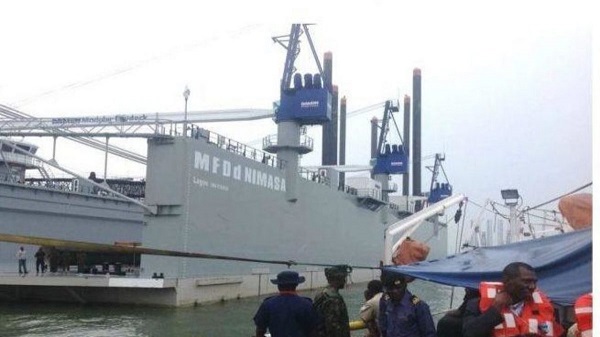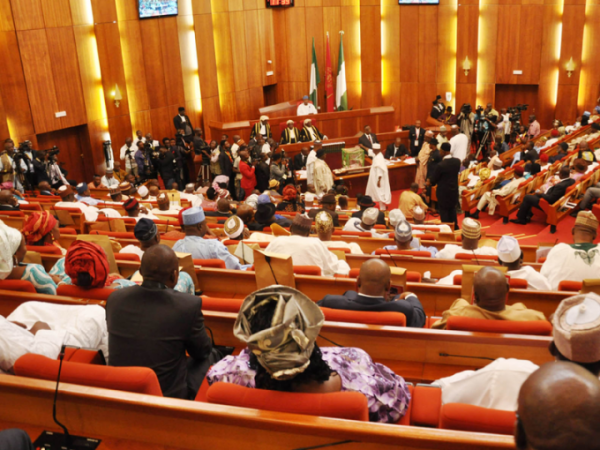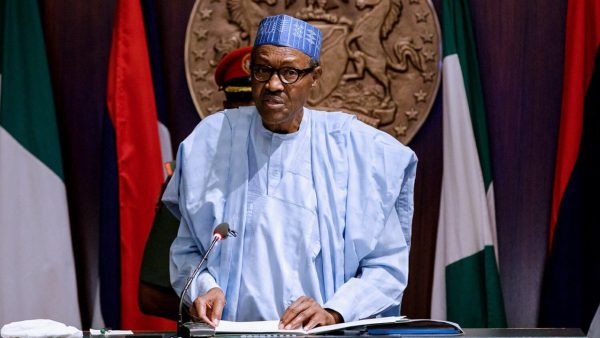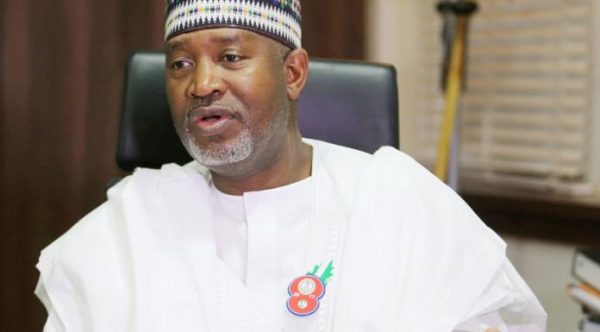How NIMASA, NPA Arrangement On N50bn Floating Dock Crashed
· IMO Council Elections: Nigeria’ll be better prepared in 2023 – Experts
· MOWCA electoral crisis is a demerit for Nigeria at IMO – Akinsoji
By Kenneth Jukpor
Eighteen months after the Nigerian Ports Authority (NPA) commenced partnership with the Nigerian Maritime Administration and Safety Agency (NIMASA) to salvage the N50billion floating dock by utilizing the facility at the Continental Shipyard in Lagos, the collaborative efforts crashed as a result of technical and political factors.
Amid the excitement in June last year when NPA and NIMASA agreed to site floating dock at Continental Shipyard Apapa, huge impediments from the private investor at the shipyard, nonchalance on the part of NPA leadership and long bureaucratic processes at the Transport Ministry, scuttled the plans.
MMS Plus also recalls an interview https://mmsplusng.com/blog/why-nimasa-n50bn-floating-dock-hasnt-been-operational-dakuku/, where the former Director General of NIMASA, Dr. Dakuku Peterside said NIMASA had finalized arrangement with NPA to have the floating dock berthed and operational at the Continental Shipyard.
On June 20, 2020, the Director General of NIMASA, Dr. Bashir Jamoh also told journalists that the agency had concluded plans with NPA to move the floating dock to NPA dockyard and gainfully utilize the facility.
Unveiling the arrangement, the Director-General of NIMASA, Dr Bashir Jamoh delightedly said the agency’s floating dock would generate N12bn annually for the country.
Surprisingly, fourteen months after, the floating dock remains docked at the Naval Dockyard accruing $30,000 per day as berthing charges and another N3.6million additional daily expense.
In an exclusive chat with MMS Plus newspaper recently, former Director-General of NIMASA, Dr. Dakuku reveals the constraints which squashed the NPA/ NIMASA arrangement for the floating dock.
His words: “NIMASA had almost concluded an arrangement with NPA and Continental Shipyard on this issue. However, Jamoh told me that when I left the NPA Managing Director, Hadiza Bala-Usman started behaving funny. It took a while before he eventually got her to agree on the arrangement. After she agreed, the next thing was to finalize how to operate the floating dock and they were to set-up a special purpose vehicle. This special purpose vehicle should be made up of three groups, NIMASA which owns the asset, NPA who owns the Continental Shipyard and a private operator which they are yet to hire.”
“They were working on this when some issues came up and the management of Continental Shipyard who leased the facility from NPA challenged NPA on several issues. Apparently, these operators have put some investment in the area and they wanted NPA to give them their money or something to address that. So, NPA was having these challenges while the framework for the floating dock was still being developed. All these were taking place when the NPA boss, Hadiza started having her challenges and the war of survival literally stopped everything they had agreed on as she had to fight for her office. That was what happened, but everybody is pained about the floating dock because it accounts for millions wasted every day.”
In another development, shipping experts have advised that Nigeria passes up the opportunity to contest in the 2021 International Maritime Organization (IMO) Governing Council elections to enable the nation to consolidate on its efforts and prepare for 2023.
Although the Ministry of Transportation hasn’t officially indicated interest in the polls this year, our correspondent recalls that the Minister of State for Transportation, Senator Gbemisola Saraki had told Nigerian representatives to start preparing for IMO Council election after the nation walked out of the Maritime Organizations of West and Central Africa (MOWCA) elections recently.
Nigeria’s former Pioneer Alternate Permanent Representative to IMO, London, Engr. Olu Akinsoji has opined that the country forgoes 2021 polls in a bid to allow the recent efforts in maritime security and administration yield tangible results to sway the international community on Nigeria’s commitment to maritime.
Akinsoji, who is also a former Rector of the Maritime Academy of Nigeria (MAN), Oron, identified the Deep Blue Project as one of the major areas for Nigeria to capitalize on, but asserted that the output of the project hasn’t matured enough for it to be considered.
“With regards to the IMO Council elections, the truth is that we can’t rely on what people say or what is in the newspapers. The international community relies on the reality of outputs. The rate of piracy has diminished but there are other factors and issues that they would judge by. The Deep Blue Project and piracy situation is said to have improved, but where are the indices? There must be some indices for the Project. These should be stated and the international community should be able to measure the output with the indices. Armed robbery at ships at the ports is another problem that is escalating and NPA has cried out to the international community for support, but why should we have these incidents when we have NPA Police outfit,” he said.
Noting that MOWCA is a baby of IMO as one of the several regional outfits to move the global body closer to the regions, Akinsoji stated that Nigeria’s recent action of jettisoning MOWCA over elections could be detrimental to the nation’s chances at the IMO polls.
“Nigeria never took advantage of all of its investments in MOWCA to get into the IMO. This isn’t IMO’s problem. MOWCA shouldn’t collapse as a result of Nigeria’s disinterest because the organization is crucial to the IMO. IMO member states will also look at Nigeria’s handling of MOWCA when considering the nation for a place on the IMO Council. Nigeria should arrange for elections to hold at MOWCA because that’s how to show the role of a big brother and a leading nation. The IMO elections later this year is a bit hasty with the MOWCA issue, Deep Blue Project and piracy situation,” Akinsoji said.
He, however, noted that the Committee responsible for planning Nigeria’s venture into IMO should draw up a holistic plan if Nigeria does decide to wait until 2023.
“If Nigeria decides not to contest this year, we should immediately begin to do things now that would make 2023 more realistic and not rest on our oars,” he added.
Similarly, former NIMASA Director-General, Dr. Dakuku Peterside said, “I think that Nigeria is beginning to get things right at the IMO but it is too short to get the best at this election. If we don’t get into the Council this year, we should be able to get in by 2023 barring any unforeseen political circumstances.”
Dakuku argued that success at IMO Council elections goes beyond size of tonnage, number of vessels or shipping lines, noting that the nation fared better than some nations which were successful at the last polls.
“Nigeria’s biggest challenge has been the issue of piracy and maritime crimes. Most nations didn’t want to see Nigeria in that IMO Council because of their perception of the country. However, Nigeria is beginning to make efforts in that direction. The impact of Deep Blue Project is something that the world is looking at and nations are attesting to the peace in the area. The truth is that it may not really be the Project that has caused the tranquility but the criminals’ perception is to slow down because they don’t know what to expect. If they watch and observe that the Deep Blue Project isn’t doing any magic, they could come back. So, the Project has to be strategic and really geared towards policing the area,” the former NIMASA boss said.
According to him, Nigeria’s problem is that of its perception in the international shipping community, adding that several issues influence the country’s rating among IMO member nations.
“The way vessels are treated in Nigeria by the agencies that inspect ships, turnaround time and delays; every vessel returns to the mother nation with information that formulates the perception of Nigeria. When a vessel comes into Nigeria and over 10 agencies have to go onboard for inspection, there is a problem because no ship experiences such in other nations. Things are also done manually in Nigeria and the total experience of those who are into shipping in Nigeria isn’t something to write home about. Consequently, the feedback to their home nations makes these countries become worried that Nigerians are hostile and problematic,” Dakuku added.
During a recent online summit with the theme; “Objective Appraisal of Nigeria’s Eligibility for IMO Council Membership”, organized by Women’s International Shipping and Trading Association (WISTA) Nigeria, participants stressed several pertinent issues to be addressed before Nigeria contests.
At the event, an Assistant Director, Special Duties Unit at Nigerian Shippers’ Council (NSC), Ms. Adaora Nwonu opined that there is a need for Nigeria to postpone its desire to contest for the IMO Category C spot even though efforts and critical infrastructures have been put in place.
Her words: “We want a situation where we can be able to prove our ability to manage things successfully and have substantial data to back it up. We need to build on that for a while. Could we decide to do a post-mortem analysis or wait until 2023 to contest again? Perhaps, some of the initiatives Nigeria has put in place like the Maritime Security assets would have been deployed in a sustainable manner such that the international community can see the benefits and Nigeria would have some statistics to share on what it has done to support its candidature.”
“Government came up with the ease of doing business to change things, but government agencies have been accused of defaulting the executive orders. Cargo coordination and examination, sharing of manifests in an automated manner is still a challenge and the shipping companies complain that they still have to do hard copies, invest in giant photocopy machines to be able to meet up with the hard copies they have to send to government agencies. Why should government agencies be demanding hard copy manifests at this time of innovation? The same vessels call other countries and don’t send hard copy manifests.”
Also speaking at the summit, a Senior Partner, Akabogu & Associates, Barr. Emeka Akabogu said the reason Nigeria is losing out is based on the perception of member states who are voting.
“When a vessel comes into the country, the master and crew of the vessel have to spend 14 days in the country trying to get berthing space. After getting a berth space, they also spend a lot of money. They have to pass through several unusual bottlenecks with regards to securing passage to berth.”
“There’s a need for a coordinated trade, secure and merchant marine strategy towards ensuring that the nation can provide experiences for international operators which will translate into good perception to be voted in, at the IMO Council,” he said.
Noting that the nation also needs to also comply with the eligibility criteria, he highlighted some criteria such as; shipbuilding and recycling services, ports and harbours, large waterways used in support of international maritime navigation, location on international shipping dwells, provision of maritime services for international shipping etc which he noted that some of having been met while some needs more deliberate positioning to achieve.







